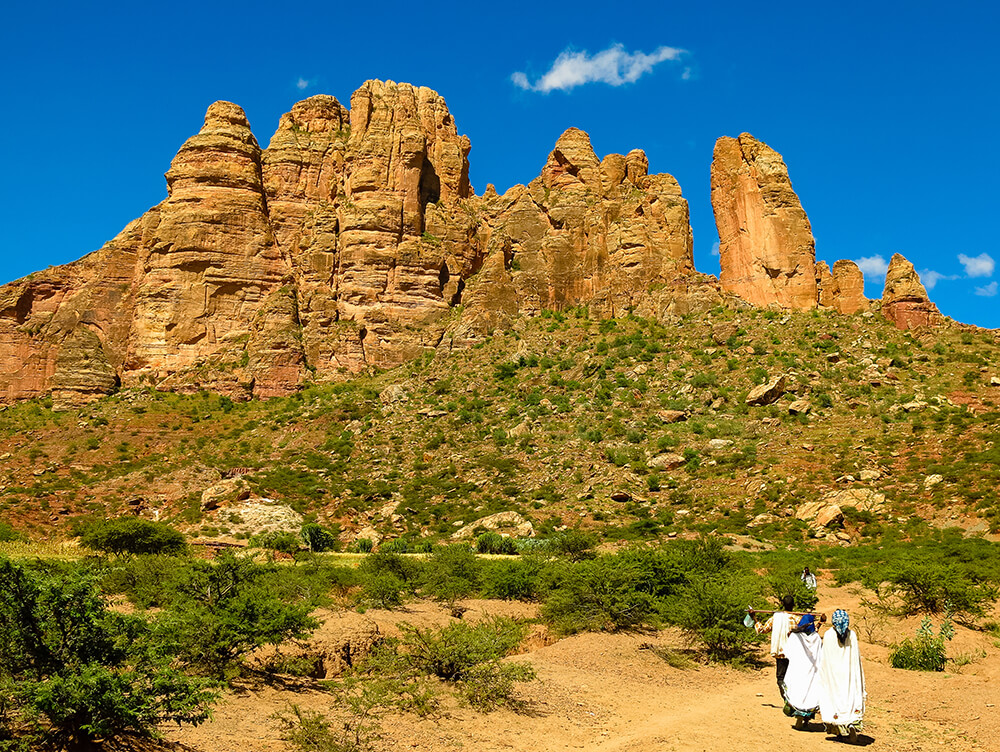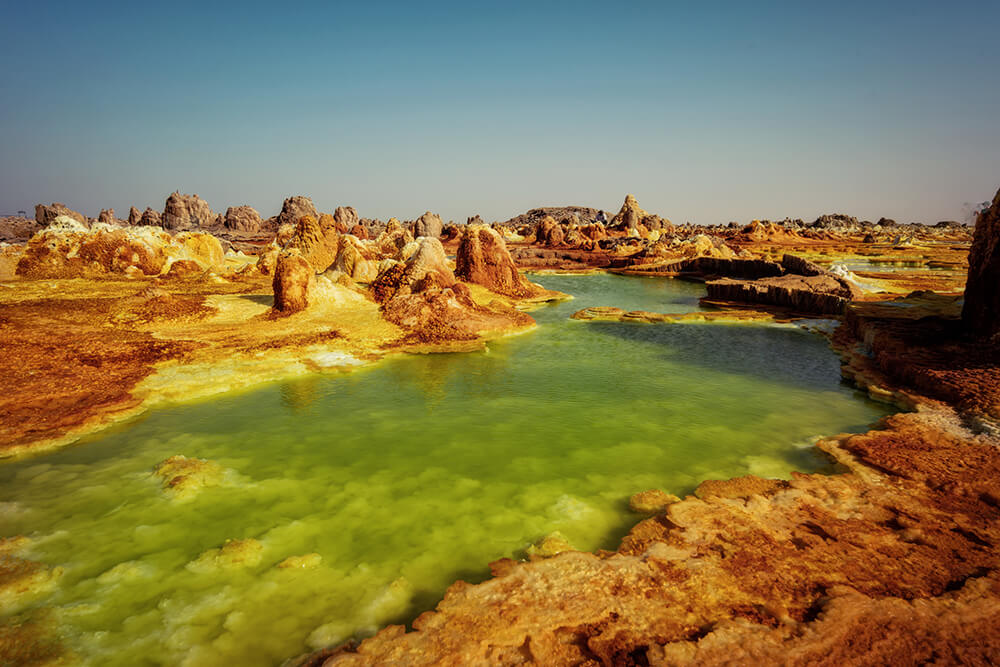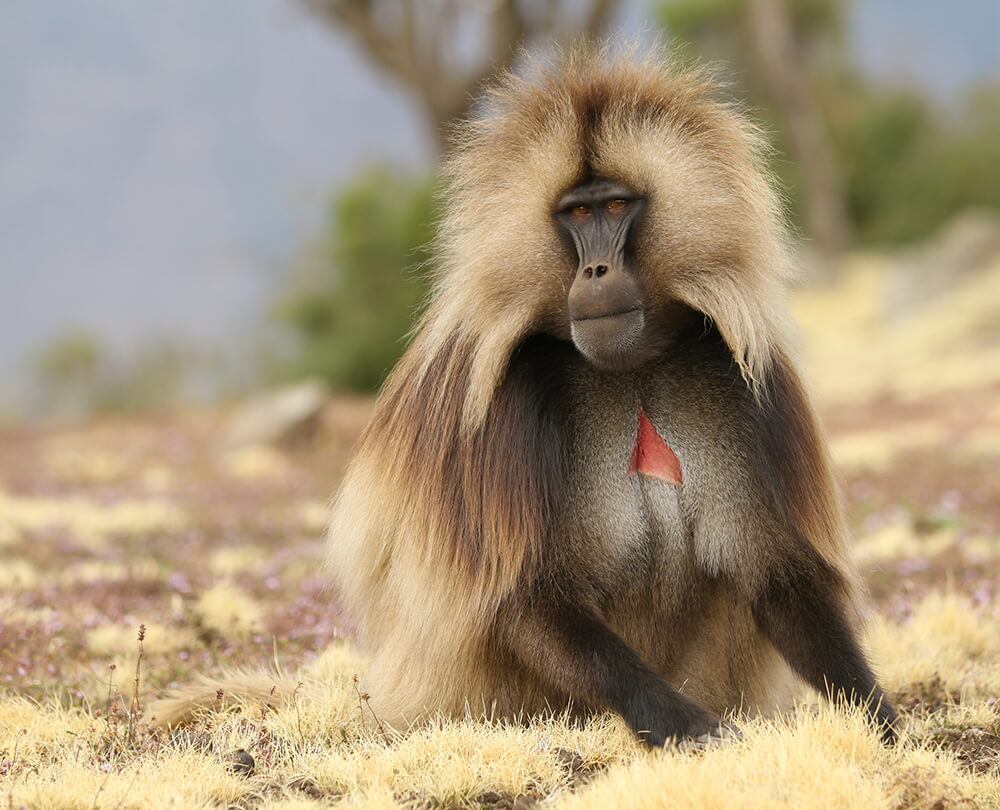Date
October 25 – November 9, 2019
Extend to Gheralta & Danakil Depression, Nov. 9 – 14, 2019
Price
$7,900
Duration
16 DAYS
Availabilty
CANCELLED
About This Tour
Ethiopia has a fascinating history stretching back more than 3,000 years to the fabled reign of the Queen of Sheba and King Solomon, and even further into the past. It is from this region that many scientists believe earliest mankind, Homo Erectus, migrated out of Africa via the Levantine corridor and the Horn of Africa to Eurasia around 1.9 million years ago. Essentially, Ethiopia is the ancestral home to all of mankind.
In the northern part of the country you will experience ancient monasteries, Castles, rock-hewn churches, steles and Ethiopia’s magnificent natural beauty. The southern part boasts many diverse and colorful cultures in the Omo Valley. This expedition takes you on an historical and cultural journey to some of the most remote areas of Ethiopia for the adventure of a lifetime.
Tour Highlights
- Addis Ababa, capital of Ethiopia
- Dorze weaving culture
- Lake Chamo in the Rift Valley
- Cultural Landscape of Konso *
- Bahir Dar, center of Christian mysticism
- Blue Nile Falls
- Rock-hewn churches in Lalibela *
- 17th century trading town of Gondar
- Fasilidas Palace in Gondar Region *
- Great East African Rift Valley
- Tribes of the Great Rift and Plains
- Lower Valley of the Omo, fossil site *
- Extension – Massive Ruins of Axum *
- Extension - Gheralta Cluster Churches
- Extension – Dallol Volcano and Hot Springs
- Extension – Danakil Depression * UNESCO World Heritage Sites
ITINERARY
Arrive in Ethiopia
Arrange your international flights to arrive in Addis Ababa, Ethiopia, by early morning on this date. (Search for flights using the airport code: ADD). A driver will meet you at the airport and escort you to our hotel. You will have some free time to rest up from jet-lag after checking in. This afternoon, enjoy a city sightseeing tour. First stop is at the magnificent Trinity Cathedral. Continue to the National Museum, close to the University of Addis Ababa Graduate School, which houses numerous antiquarian relics and archaeological artifacts showing the history of Ethiopia from prehistoric times to the modern day. Its most famous exhibit is a replica of the 3.5-million-year-old skeleton of 'Lucy'.
Continue to St. George’s Cathedral, dedicated to the national saint of Ethiopia. The museum houses a wide collection of important religious paintings, crosses of many designs, historic books and parchments, and beautiful handicrafts. There are also fine examples of modern paintings by the famous Ethiopian artist Afewerke Tekle. Last stop of the day is at the Zoological National History Museum at Addis Ababa University (AAU) which displays specimens of the wildlife attractions of Ethiopia. Enjoy a welcome dinner tonight and get your first taste of Ethiopian cuisine. (Dinner included)
Arba Minch
Today head back to the airport to board your flight to Arba Minch (in Amharic it means “40 springs”), located in a beautiful setting at the foothills of the Rift Valley escarpment and overlooking Lake Abaya and Lake Cham. In the afternoon we visit the Dorze village, known for their weaving culture which is reflected in their beautiful cotton clothes, fences, and beehive shaped bamboo huts. Men weave and women spin. Each Dorze bamboo house has its own small garden surrounded by beds of spices, cabbage and tobacco. Their staple food is Kocho, made from the false banana. The evening is free to enjoy the amenities and spa services of our lodge while taking in the breathtaking view over the two valley lakes. (All Meals)
Lake Chamo / Konso Village / Turmi
In the morning, take a remarkable boat ride on the southernmost Rift Valley lake of Ethiopia, Lake Chamo. One can spot many hippos and giant crocodiles, and the scenery is truly unforgettable. Fishing for Nile perch and many other species by locals on their traditional boat is by far the best in the country. We can also watch various lowland water birds like the African Fish Eagle, Great White Pelicans, and egrets. Leaving Lake Chamo behind, we visit the Konso village where we enjoy lunch. The cultural landscape of Konso is a UNESCO World Heritage site, and is comprised of stone-walled terraces and fortified settlements in the highlands stretching back 21 generations (more than 400 years). Konso is known for its religious traditions, waga sculptures and nearby fossil beds. (All Meals)
Karo & Hamer Villages
Today’s drive takes you to Koricho, a settlement for the Karo Nilotic ethnic group, famous for their body paintings. They are also one of the smallest tribes in the region with an estimated population between 1,000 and 3,000. They paint themselves daily with colored ocre, white chalk, yellow mineral rock and pulverized iron, all-natural resources local to the area. This is an elaborate process, which ranges from fine details to rough, but striking paintings traced with the palms or fingers. The Karo people also scarify their chests to beautify themselves by cutting with a knife or razor and rubbing ash into the wound to create a raised effect.
In the afternoon, we visit the Hamer tribe,
whose women are known for their striking appearance, adorned with ochre-colored hair hanging in a heavy fringe, leather skirts decorated with cowries, and many copper bracelets fixed tightly around their arms. The men are noted for the initiation ceremony of jumping over bulls. (All Meals)
Dassanech Tribe / Jinka
This morning travel closer to the Kenyan border to visit the people of the Dassanech tribe. We cross the Omo River, one of the major rivers of the country that drains into Lake Turkana of Kenya, to visit one of the villages of the Dassanech tribe (meaning “people of the delta), who are the southernmost people of the country and are known for their scarifications. Over time the tribe absorbed a wide range of different people and it is now divided into eight main clans. Each clan has its own identity and customs, its own responsibilities towards the rest of the tribe and is linked to a particular territory. Continue with our drive to Jinka, the biggest town in the Omo region and our base to visit Mago National Park in whose lands reside the Mursi, perhaps the most famous of all the peoples of Southern Ethiopia. (All Meals)
Mursi & Ari Tribes
After breakfast, we leave Jinka and drive to Mursi village to visit one of the most fascinating tribes in Africa. Although recent extreme drought has made their herding and cultivation difficult, they still adhere to their traditional and unique culture. They are renowned for the strange custom followed by their women who on reaching maturity, have their lower lips slit and circular disks inserted, indicating her worth before getting married. Men of the Mursi also use white paint for their bodies and faces. Just like any other ethnic tribe in the lower valley, the men must pass a test before they can get married. A Mursi man is given a stick called a “Donga “and must face one opponent. The men then battle it out, beating each other with the sticks.
In the afternoon visit the Ari people, the biggest group in the Omo region, numbering over 100,000. Ari are living in wider villages with private compounds on which they have their huts and grow a variety of crops. They have large livestock herds and produce large quantities of honey. Ari women are famous for their pottery which they sell to support their families. (All Meals)
Return to Addis Ababa
Enjoy a morning of leisure, or further tribal explorations before your transfer to the airport for our mid-day flight back to Addis Ababa. Upon arrival, our group returns to the Sheraton Hotel, where we spent our first night, and we check-in to our rooms. As today is merely a transit stop between two locations on our tour, the rest of the day is at leisure to rest up, go swimming in the pool, do some more exploring on your own, and enjoy fine dining at our hotel’s restaurant. (Breakfast)
Bahir Dar / Blue Nile Falls
Today’s morning flight takes us north to the third largest city in Ethiopia, Bahir Dar. It is located on the shores of Lake Tana, the largest lake in Ethiopia and the source from where the Blue Nile starts its long journey to Khartoum. There it joins with the White Nile and continues to the Mediterranean. Upon arrival, we drive to the Blue Nile Falls, flowing out of Lake Tana with tremendous force and volume over the basalt shoulder of a giant cataract and onwards from there, ever downwards towards the deserts of Sudan, on its way to enrich Egypt's fertile delta.
The power of the Blue Nile may best be appreciated
twenty miles downstream from Lake Tana, where a rumble of sound fills the air and the green fields and low hills tremble as the falls plunge 150 fifty feet down a sheer gorge throwing up a continuous mist that drenches the countryside up to a kilometer away. In turn, this deluge produces rainbows that shimmer across the gorge under the changing arc of the sun and a perennial rainforest. The pillar of cloud in the sky above, seen from afar, explains the local name for the falls, “Tissisat” or water that smokes. It takes about one hour to walk to reach the Falls and another hour to return. We check in at our hotel and the evening is at leisure. (All Meals)
Lake Tana
We cross Lake Tana this morning to visit the monastery of Ura Kidane Miheret, and Azwa Mariam located on the peninsula of Zegue. The round Ura Kidane Mihret Church has a straw-thatched roof that follows the classic structure of the churches of the region. Azwa Mariam Monastery, dating back several centuries, is known for its colorful murals depicting biblical stories that cover every surface. In the afternoon, we take time to explore Bahir Dar which is distinctly known for its wide avenues lined with palm trees and a variety of colorful flowers. The city was awarded UNESCO Cities for Peace Prize for managing to address the challenges of rapid urbanization. (All Meals)
Gondar / Simien Mountains
This morning we drive to Gondar, an important town for over two centuries, and a thriving center of religion, art and culture. Arrive in Gondar just in time for lunch. Afterwards, drive to the Simien Mountains, a stunning mountain range, alive with exotic plant and animal life. The highest mountain here, Ras Dashen at 14,905 feet above sea level, proudly carries the local moniker ‘The Roof of Africa.’ These spectacular segments of the Simien Mountains are considered the wildest and most beautiful sites of all Ethiopian landscapes and serve as home to many endemic animals like the highly endangered Ethiopian wolf, Waliya ibex, and Gelada baboons, and plants like the Giant Lobelia. The massive 13,000-foot-high table of rock offers easy but immensely rewarding trekking along the edge of a plateau that falls sheer to the plains far below. The scenery and the variety of wildlife will leave you speechless. We stay at a lodge sitting atop an escarpment with wonderful views of the mountains, and our second day here is dedicated to exploring in the mountains. (All Meals)
Simien Mountains / Return to Gondar
We enjoy another activity in the Simien Mountains this morning and then travel back to Gondar. Founded around 1635 by Emperor Fasilidas, he originally used the city for a residence but about a year later he moved his capital here. By the late 1640’s he had built a great castle, the recently restored Fasilidas Palace. With its large towers and looming battle walls it looks as if a piece of medieval Europe has been transported to Ethiopia. This afternoon we enjoy a tour of Debre Berhan Selassie, one of Ethiopia’s most beautiful churches. Located on the summit of a hill and surrounded with fortified walls, the breathtaking inner sanctuary features stunning frescos which represent a masterpiece of the Gondarene School of Art. (All Meals)
Gondar
A full day of Gondar culture and history await you! Recognized as a UNESCO World Heritage site in 1979, the Fasilidas Palace stands in a compound filled with juniper and wild olive trees. The compound includes the Enqulal Gemb, or Egg Castle, named after its domed roof, the royal archive, many impressive churches and monasteries and a stable. These exemplify architecture that is marked by both Hindu and Arab influences, subsequently transformed by the Baroque style that the Jesuit missionaries brought to Gondar. This delightful mix has earned the city the nickname “The African Camelot”. All Meals
Lalibela
A morning flight transports us to the mountain village of Lalibela, one of Ethiopia’s holiest cities. Once the thriving and populous capital city of a medieval dynasty, the passing centuries have reduced Lalibela to a mere village. Nearly invisible from the road below, Lalibela, previously known as Roha, is named after a 12th century king. Myth and legend claim he had a near-death experience which prompted a vision to build many churches like the world has never seen. Once he was crowned, he gathered masons, carpenters, and tools, set down a scale of wages and purchased the land needed for the buildings.
These awe-inspiring, towering edifices were hewn out of the solid, red volcanic rock on which they stand. They seem to be of superhuman creation – in scale, in workmanship and in concept. Some lie almost completely hidden in deep trenches, while others stand in open quarried caves. A complex and bewildering labyrinth of tunnels and narrow passageways with offset crypts, grottoes and galleries connects them all – a cool, lichen- enshrouded, subterranean world, shaded and damp, silent but for the faint echoes of distant footfalls as priests and deacons go about their timeless business. We spend two exciting days exploring these architectural marvels. We also enjoy an opportunity to meet with the clergy and have a brief discussion about the history of the churches. We spend these two nights in a lodge centrally located among all the churches and other historical sites in the surrounding area. (All Meals)
Return to Addis Ababa / Departure
Today those who are concluding their tour catch a short flight back to Addis where we enjoy free time to explore on our own and do some last-minute shopping. In the evening, enjoy a farewell dinner with traditional Ethiopian food, music, and dance. A dayroom is provided for you at the hotel. After dinner, those who are ending their trip are escorted to the airport for their return flight home. Flights typically take off after midnight. (All Meals)
OPTIONAL EXTENSION TO GHERALTA & THE DANAKIL DEPRESSION
Lalibela to Axum
After breakfast, we check out and take a morning flight from Lalibela to Axum, a town littered with the ruins of palaces, underground tombs, mysterious monolithic stelae carved from single pieces of granite, and many other historical relics. The founding of the Empire of Axum in the 5th century BC is often taken as the starting point of the Ethiopian civilization. This is also the place where one of the most important churches and pilgrimage sites in all of Ethiopia is located, where the Ark of the Covenant is reputed to be located. In the afternoon visit the most amazing sites of Axum, including its collection of ancient stelae, the bath and the palace of the Queen of Sheba, the museum, St Mary of Tsion Church (Ark of the Covenant site), the tombs of former emperors King Kaleb and Guebre Meskel, and the chapel (only men are allowed to enter). Overnight in Axum. (All Meals)
Gheralta
After breakfast, a four-hour drive takes us through spectacular countryside to Gheralta. Some of the rock churches here are famous for their stone workmanship, ancient paintings and old manuscripts, while others are known for their magnificent views and difficult ascents. We enjoy two days in the Gheralta area, with its unique chain of mountains, exploring the Gheralta Cluster of churches, visiting the marvelous houses of worship that dot this remote and inspiring landscape. A visit will be organized to the churches of Dugem Selassie, Mariam Korkor (most impressive architecturally), and Daniel Korkor (most impressive view), some requiring stamina and physical ability to reach. Your guide will explain the difficulty and make provisions for alternative visits based on ability. These churches are the greatest of the historical, cultural heritages of the Ethiopian people, and the scenery is spectacular. (All Meals)
Wukro
Our drive this morning takes us to the town of Wukro, strategically located so that the entire cluster of the rock hewn churches of Tigrai can be visited from here. The historic mosque of Negash and the town of Agulae, are located within 6.2 miles from our lodge. Our lodge is eco-friendly using as much as possible natural materials, creating a good harmony with nature. Today is mainly for transit from one location to the next. After arriving at the lodge enjoy free time to go exploring in Wukro or relax and take in the stunning views of the countryside from the lodge. (All Meals)
Dallol
We get an early start this morning for a three-hour drive to Dallol to enjoy the spectacular view of the small hills and colorful hot springs. These hot springs are composed of different minerals along with sulfurs and potash to create spectacular colors. Dallol volcano is located in the Danakil Depression in Northeast Ethiopia, in a remote area subject to some of the highest average temperatures on the planet. The sultry Danakil Desert surrounds the desiccated settlement, which contributes to Dallol’s unforgivingly hot climate. The annual average high temperature is 105 ˚F. Heat and drought pummel Dallol, making visitors feel like they’re on another planet. It is one of the most inhospitable regions of the world but is nonetheless spectacular. We drive back to Wukro for the night. (All Meals)
Return to Addis Ababa/Depart
We drive back to Mekele Airport to catch our morning flight back to Addis Ababa. Upon arrival, you can enjoy the rest of the day relaxing or exploring the capital city. In the evening, enjoy a second farewell dinner with traditional Ethiopian food, music, and dance. After freshening up at the hotel, your tour of Ethiopia concludes with a drop-off at the airport for your flight home, arriving the next day. (All Meals)
TOUR PREPARATION
Entry Requirements - All visitors to Ethiopia will need to obtain a visa upon arrival at the Bole or Dire Dawa International Airport, or from the Ethiopian Embassy before departing your home country. Single entry visas are valid for stays up to 30 days, but there are also multiple-entry visas good for three to six months. Fees vary depending on the type and the validity. Your passport must have two blank visa pages and must be valid for a minimum of six months beyond your intended stay in Ethiopia. An international Yellow Fever Certificate is required for all persons arriving from countries where Yellow Fever is active. Click here to see a list of those countries.
Immunizations & Health - No vaccinations are required to enter Ethiopia, although it is highly recommended to take precautions against prevalent diseases like typhoid fever, hepatitis B, meningococcal meningitis, rabies, and malaria. Check with your doctor or a travel clinic for recommendations prior to traveling to Ethiopia. Click here to read the CDC health information for travelers to Ethiopia.Exit Requirements - There is currently no separate departure tax required of visitors leaving Ethiopia other than that included with the cost of your airline ticket.
MAKING TRAVEL ARRANGEMENTS TO ETHIOPIA
On this tour, international airfare is NOT included. You will need to get your round-trip international airfare to Addis Ababa, Ethiopia and back to the U.S.A. We encourage you to work with Steven Goldberg at Frosch Travel in Chicago, who can find the best flights to get you to Addis Ababa to fit the dates of this tour.5 internal flights within Ethiopia are included in the price of the main tour, and 2 more for the optional extension.
You need to arrive in Addis Ababa in the early morning on Friday, October 25, 2019. Your hotel will be available for immediate check-in. Book your return flight in the late evening of Saturday, November 9, 2019 (main tour) or Thursday, November 14, 2019 (extension).
Steven Goldberg / Frosch Travel
Toll-Free in USA: 1-800-323-1276International guests, please call +1-312-371-9686
Email: steven.goldberg@frosch.com
When calling, please identify yourself as a Toto Tours participant. If you leave a message on Steven’s voice mail, he will return your call promptly. He will be happy to discuss your travel plans and help you decide when to purchase your ticket for the best rate.
NOTE: The recent trend in travel is for travelers to finalize their plans much closer to departure time than was customary in the past. While we try to be as flexible as possible we often must turn away last minute registrants because we relinquish hotel space and air reservations 8 – 12 weeks prior to departure! Please keep this in mind when making your travel plans.
WHAT TO BRING
In October, average daily temperatures in Ethiopia range from a low of 50 degrees at night to 80 degrees in the day. It could get even colder in the mountains, or hotter in the desert, so basically prepare for anything with layers of clothing. Try to pack light and bring only one piece of luggage plus your carry-on. Create mix and match outfits and think about layering! Pack any medications you require in a carry-on bag and leave expensive jewelry at home.Suggested Packing List:
- Proof of citizenship. Passport required.
- Nice casual wear for dinners.
- Long pants (2 – 3 pairs), belt.
- Long-sleeve shirts (5 – 6).
- Short-sleeve shirts (5 – 6).
- Socks, underwear for 15 days.
- Sweater or jacket to add a layer for additional warmth.
- Personal toiletries.
- Camera, lots of digital memory, extra batteries.
- Ziploc Bags (sandwich size for documents, gallon size for wet items or toiletries).
- Electrical Adapter. The electricity supply in Ethiopia is 220 Volts. Click here to see examples and obtain more information.
- A good book for the long flights.
MONEY MATTERS
The official currency is the Ethiopian birr (ETB). Banknotes come in values of 100, 50, 10, 5 and 1 birr. Big cities have ATMs and remittance offices for easy cash transfer. Traveler’s checks are also accepted almost everywhere. Credit cards are not very widely used, except in large establishments like hotels and the airport. Currency exchange facilities are available in major towns. Click here to see the current exchange rate.Tipping in Ethiopia: Some Ethiopians may indicate that they want a tip, or even ask for it. In many situations, tipping is not necessary, but there are a few in which it is appropriate. A few restaurants will include a service charge, but normally a small tip is appropriate. If you assign someone to do a task or to lead you somewhere, you should tip them a few birr for their service upon completion of the job. Small favors generally call for a tip, and taking a photo of someone should include a few birr as a thank-you. Tipping taxis is not necessary, so always agree on a price for their service before entering the taxi. We will offer a group tip to guides and drivers, and more details will be provided before departure.
THE TOTO SPIRIT
Toto Tours provides Adventure Travel Experiences as differentiated from tours in the traditional sense. Adventure Travel allows (even encourages) you to be an active participant. Adventurers can be identified by certain traits. They are:- fun-loving optimists who have a sense of humor and accentuate the positive;
- good natured realists who are willing to accept situations as they exist;
- undaunted by the unexpected, like occasional delays or bad weather;
- willing to forego some of the amenities we normally take for granted;
- eager to try new things & test limits;
- punctual;
- not whiners!
THINGS YOU NEED TO KNOW ABOUT ETHIOPIA
- To enjoy your trip to the fullest, you should be in good physical and mental health.
- Participants should be able to walk at an easy pace over uneven terrain at cities and sites of ancient ruins for three or four hours at a time. Some of the walks are strenuous, particularly in Lalibela and Gheralta navigating the various churches and the treks in the national parks.
- Your journey includes some strenuous activity. Walking on rough pavement and ascending/descending uneven and not always defined stairs will be required, as well as treks in the national parks.
- Unfortunately, tourist sites in Ethiopia are not required to be wheelchair/handicap accessible. There are no standards like we are accustomed to in US. Often it is difficult at best, and many times impossible, to accommodate wheelchairs and power chairs during the activities listed in the itinerary.
- In general, this trip requires:
- Flexibility and good humor – unexpected changes and/or glitches will occur.
- A spirit of adventure and curiosity.
- Interest in and willingness to appreciate a destination with uneven infrastructure and a bending definition of comfort. That being said, some locations are nestled in absolute luxury where pampering is the norm.
Travel Insurance
We recommend you purchase travel insurance with Travel Guard to cover for unforeseen events prior to and during your trip. Please follow the link below or call us for more information.MAIN TOUR PRICING
Tour prices per person
Main Tour Price: $7,900 in double occupancy hotel and lodge accommodations. Participants flying internationally on Ethiopian Airlines will receive a $500 discount off this price due to our ability to save on your internal flights.Private Room: $1,300 additional, for a total tour price of $9,200. (Paying a single supplement is not required. Toto Tours will try to match you with a roommate if you are traveling alone and prefer to share a room. If this is not possible, a single supplement will be applied to your reservation before the final payment date.)
Deposit: $1,000
(Due at time of registration for the tour. May be paid with a credit card.)
Remaining Balance (main tour): $6,900 double / $8,400 single
Remaining Balance Due: August 6, 2019 (80 days prior to departure)
(Full payment required with reservation form if enrolling after this date.)
Note: The tour price does not include bank service charges for processing credit card payments and assumes that the balance of the tour price will be paid by check. If you would like to pay the final balance with a credit card, a 4% service charge will be applied. Let us know if you wish to pay by credit card, and we will adjust your invoice accordingly.
Included: 15 nights hotel or lodge accommodations; day-room on final day of the tour; airport transfers; breakfast daily and other meals as specified in itinerary; ground transportation in climate controlled vehicles; complimentary bottled water in vehicles and with meals; all applicable hotel/lodge taxes and gratuities for baggage handling; complimentary emergency evacuation insurance; specialist guide throughout; five internal flights within Ethiopia; sightseeing activities and entrances as listed in the itinerary. This is a fully guided and escorted tour.
Not Included: International airfare to/from Addis Ababa (ADD); ground transportation for sightseeing on your own (taxis, local guides, etc.); meals and optional activities not specifically listed in the itinerary; camera fees; alcoholic beverages; travel insurance; laundry, telephone calls, faxes, or any other expenses of a personal nature. Tips to drivers and guides and other conveyance attendants are not included; tipping guidelines for our group tips will be provided prior to departure.
EXTENSION PRICING
Extension prices per person
Extension Price: $2,900 in double occupancy hotel and lodge accommodations.Private Room: $600 additional, for a total extension price of $3,500.
Deposit: $200 additional, for total deposit of $1,200
(Due at time of registration for the tour. May be paid with a credit card.)
Remaining Balance (main tour + extension): $9,600 double / $11,700 single
Remaining Balance Due: August 6, 2019 (80 days prior to departure)
(Full payment required with reservation form if enrolling after this date.)
Included: 5 nights hotel or lodge accommodations; day-room on final day of the tour; airport transfers; breakfast daily and other meals as specified in itinerary; ground transportation in climate controlled vehicles; complimentary bottled water in vehicles and with meals; all applicable hotel/lodge taxes and gratuities for baggage handling; complimentary emergency evacuation insurance; specialist guide throughout; two internal flights within Ethiopia; sightseeing activities and entrances as listed in the itinerary. This is a fully guided and escorted tour.
Not Included: International airfare to/from Addis Ababa (ADD); ground transportation for sightseeing on your own (taxis, local guides, etc.); meals and optional activities not specifically listed in the itinerary; camera fees; alcoholic beverages; travel insurance; laundry, telephone calls, faxes, or any other expenses of a personal nature. Tips to drivers and guides and other conveyance attendants are not included; tipping guidelines for our group tips will be provided prior to departure.
ACCOMMODATIONS
Click hotel name to read description
- Sheraton Addis Ababa (2.5 nights split – start, mid-tour, Day Room at end): Sheraton Hotel
- Arbaminch (1 night): Paradise Lodge
- Turmi (2 nights): Buska Lodge
- Jinka (2 nights): Eco Omo Lodge
- Bahir Dar (2 nights): Avanti Blue Nile Hotel
- Simien Mountains (2 nights): Limalimo Lodge
- Gondar (2 nights): Gondar Hills Resort (No website)
- Lalibela (2 nights): Mezena Lodge
Extension Hotels
- Axum (1 night): Yared Zema International Hotel
- Gheralta (2 nights): Gheralta Lodge
- Wukro (2 nights): Wukro Lodge




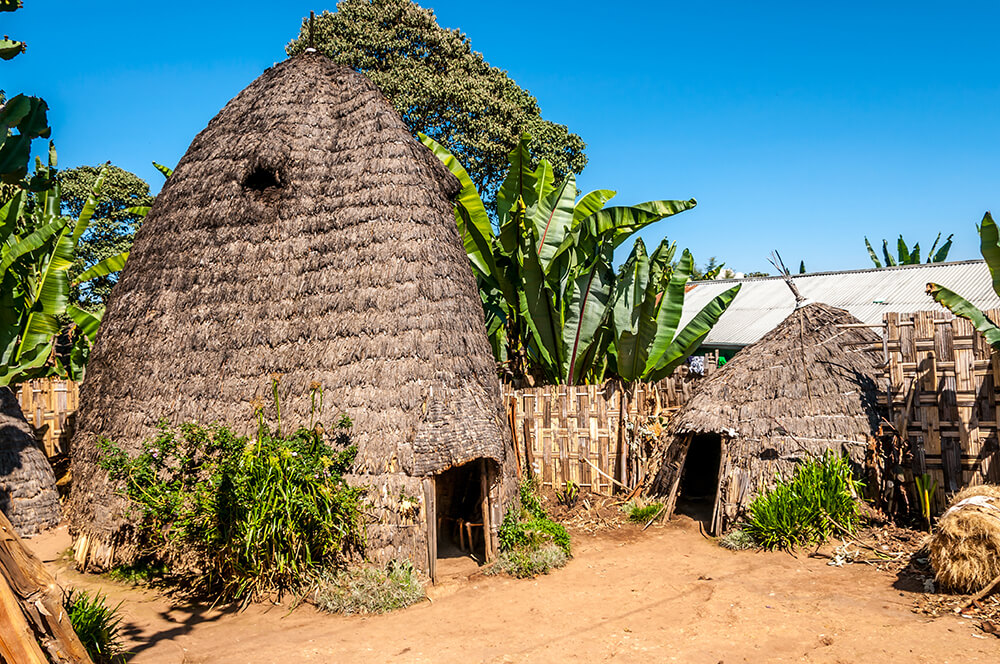
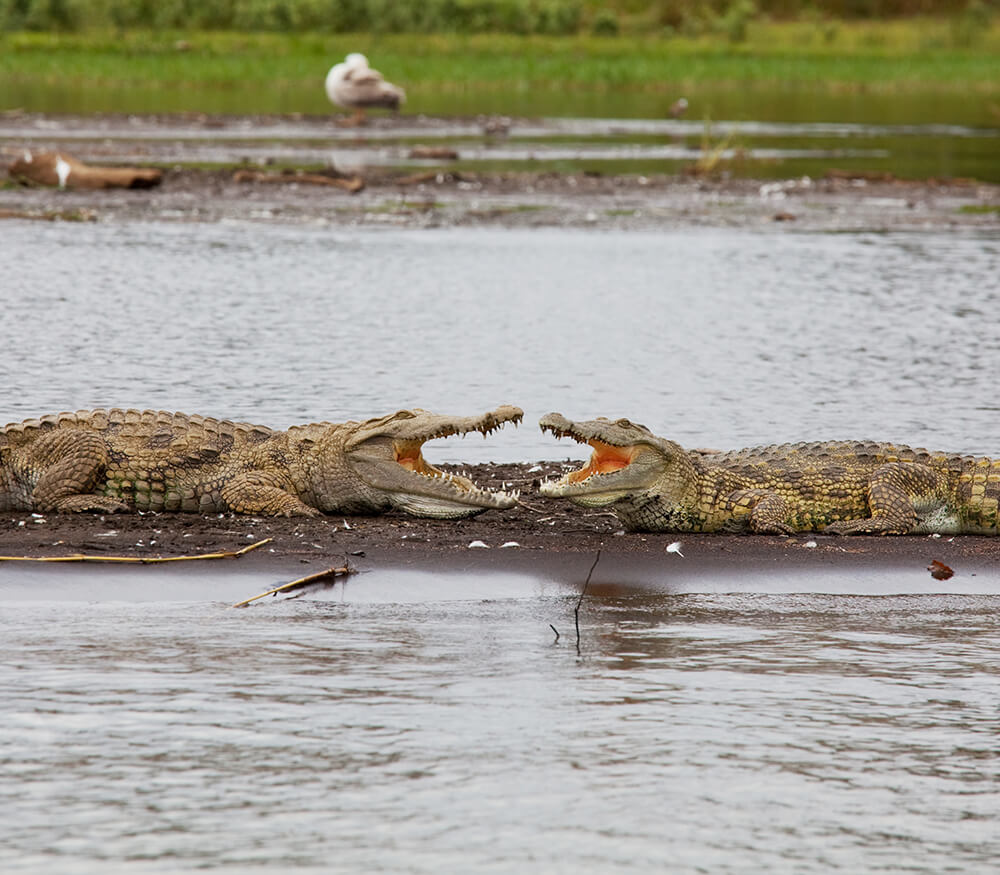
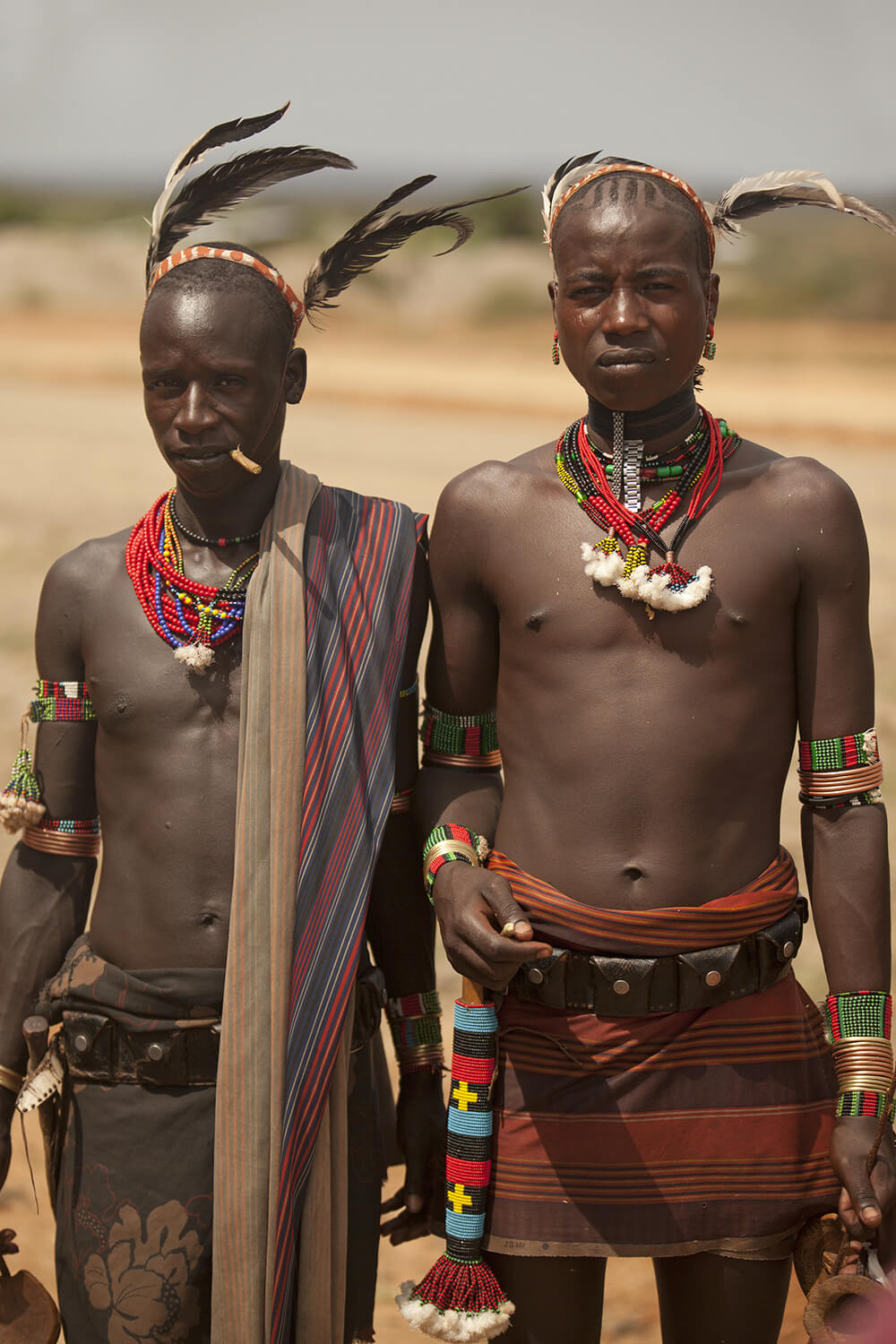
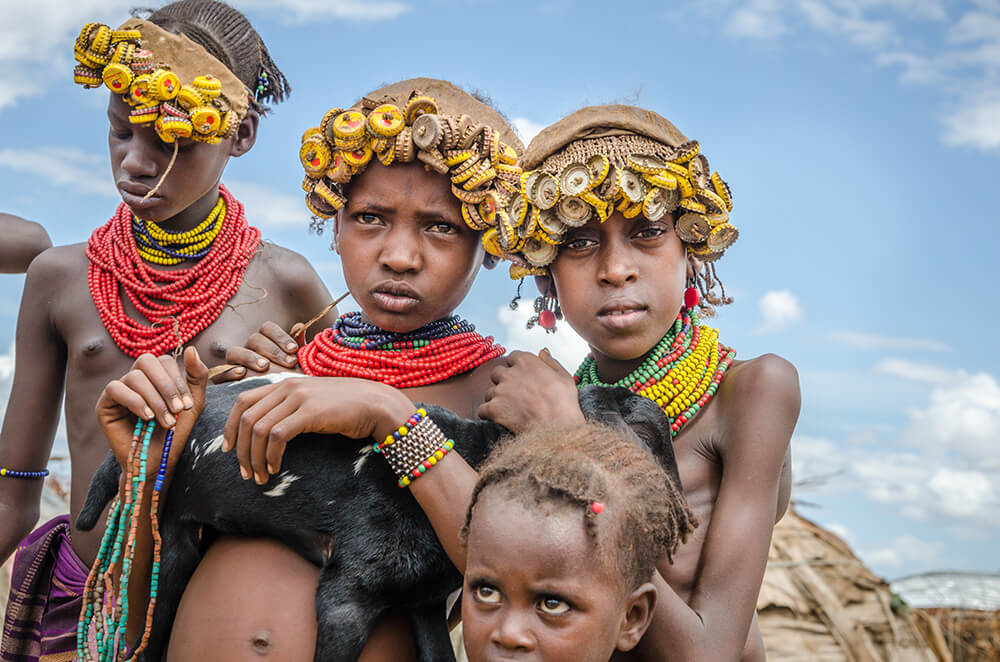
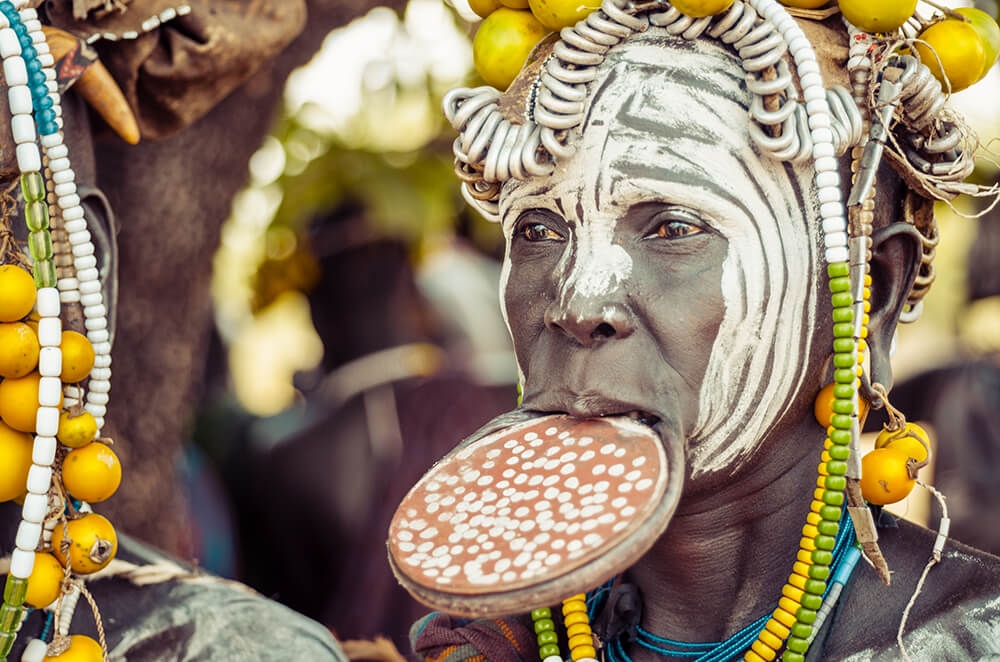
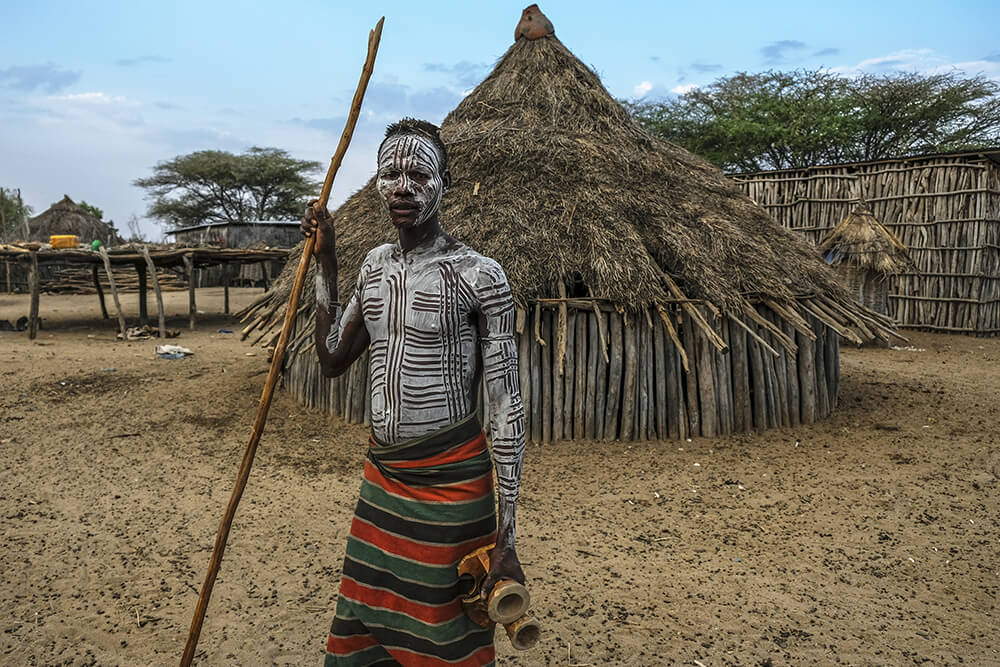
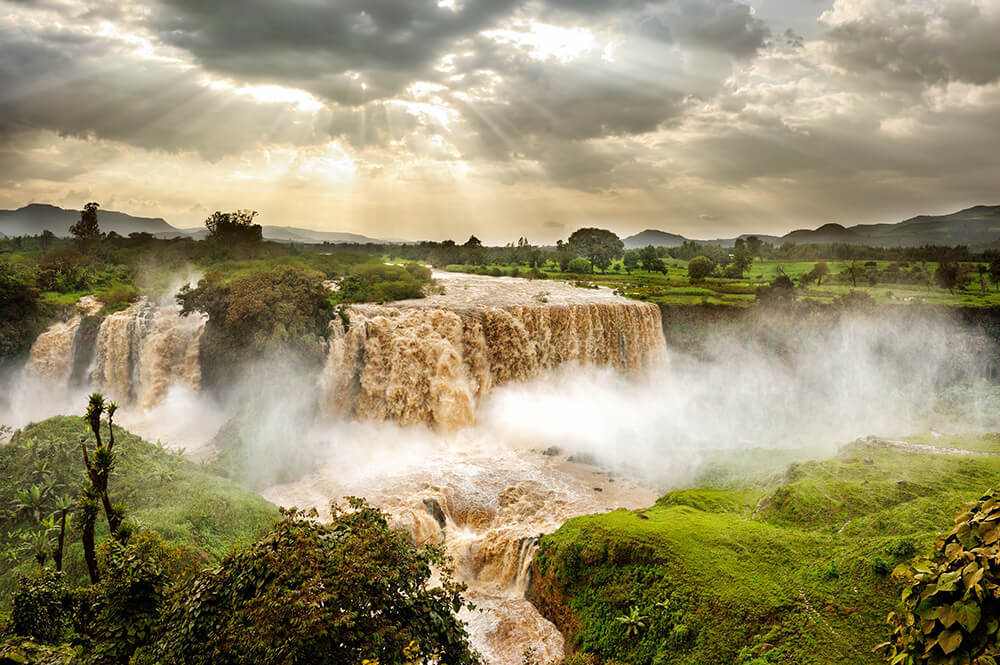
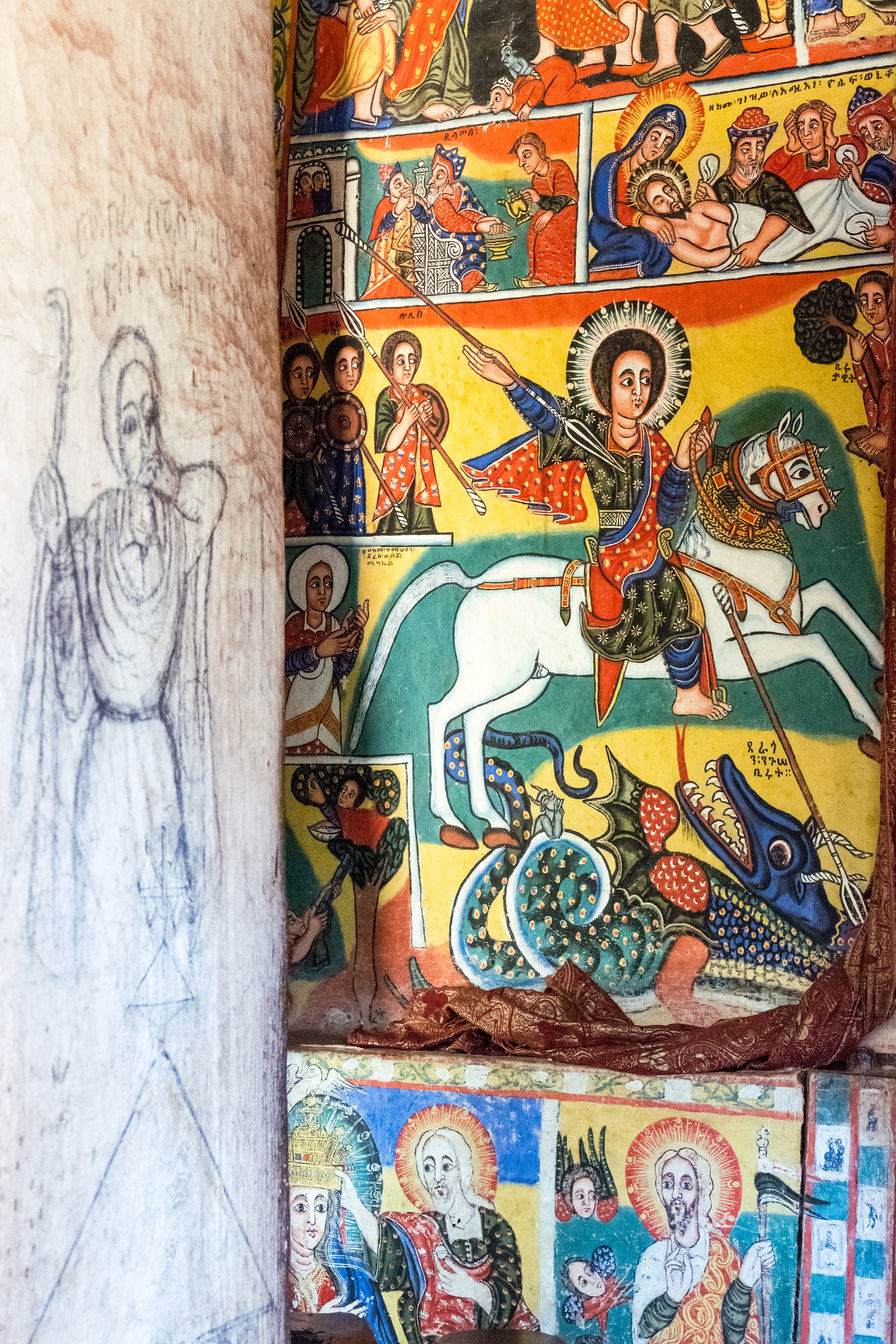
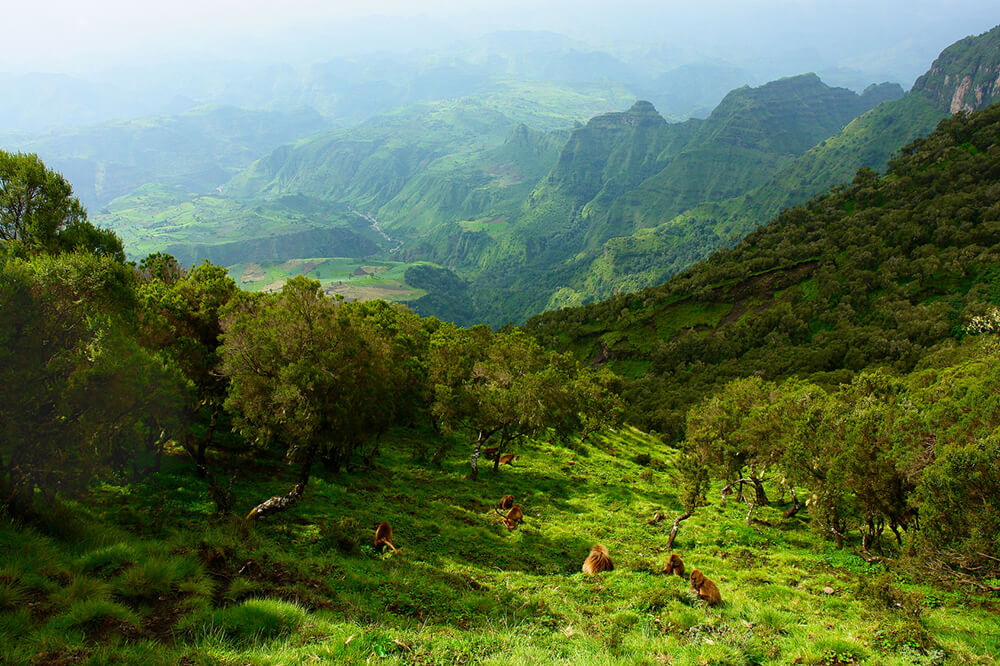
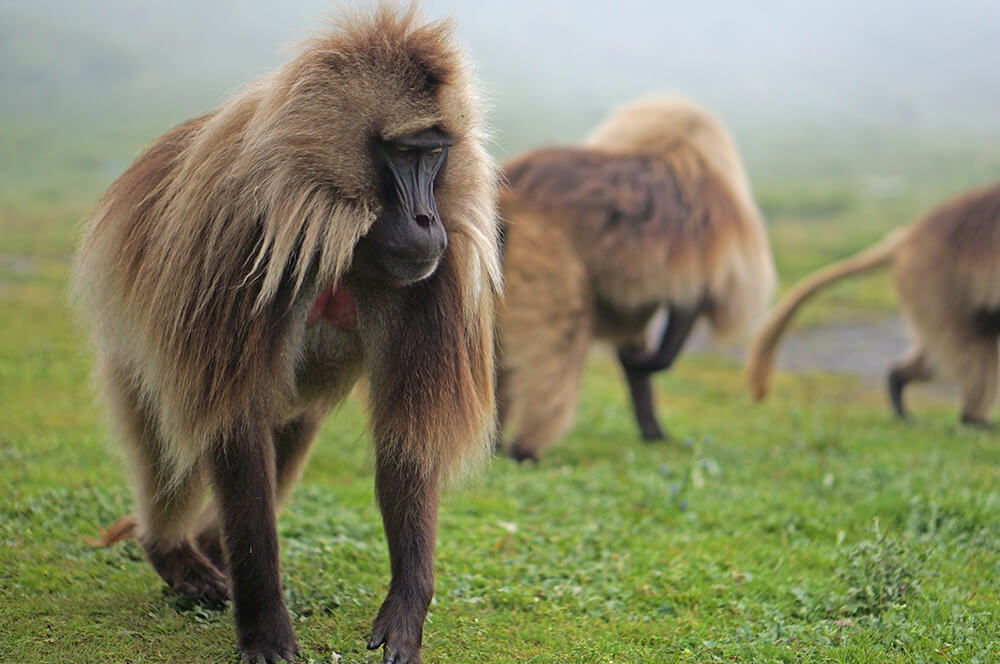
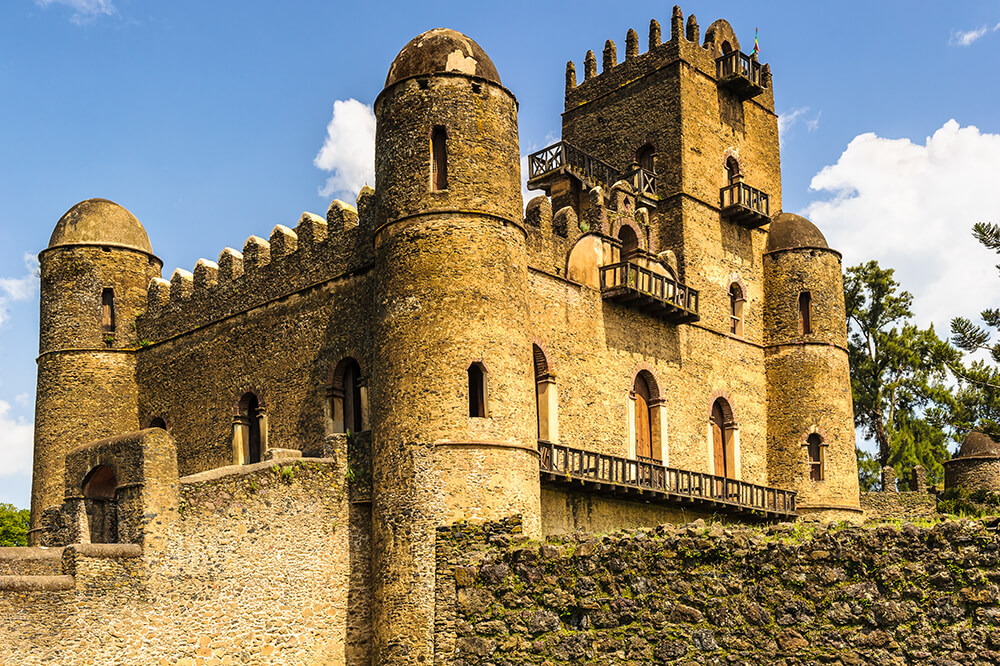
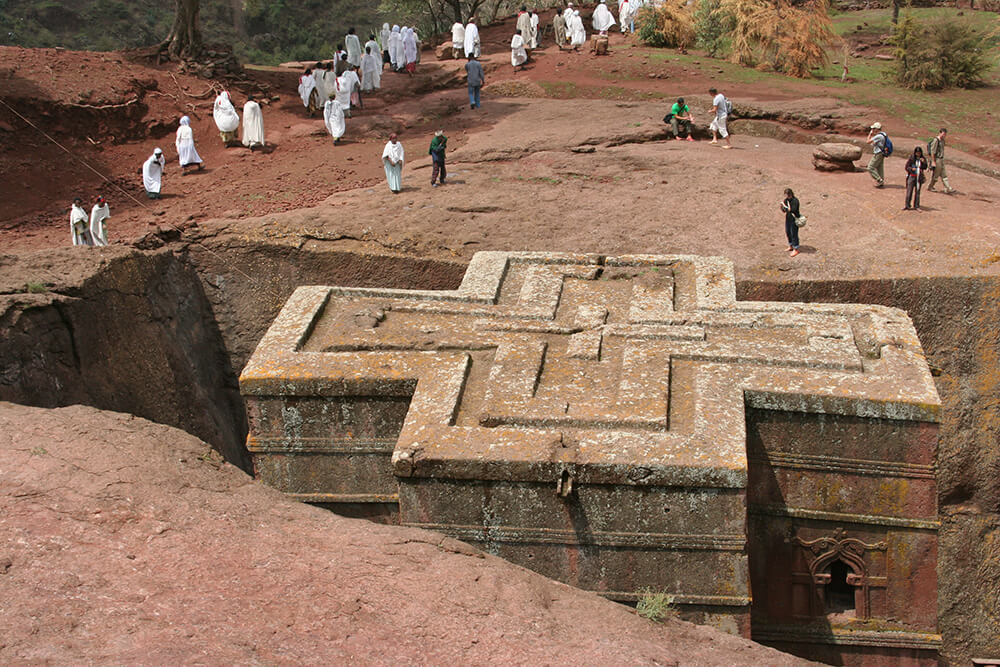
_©_siempreverde22.jpg)
